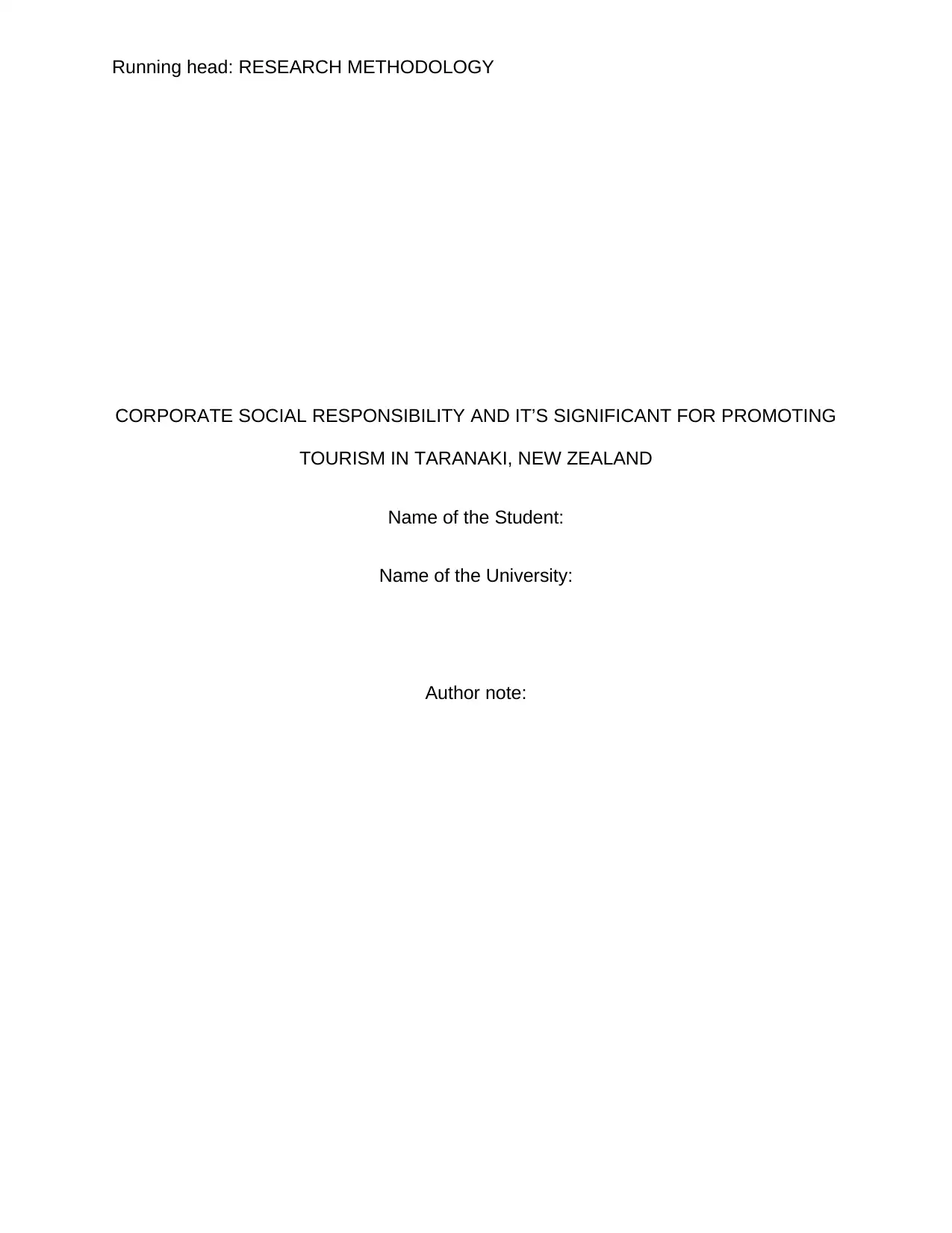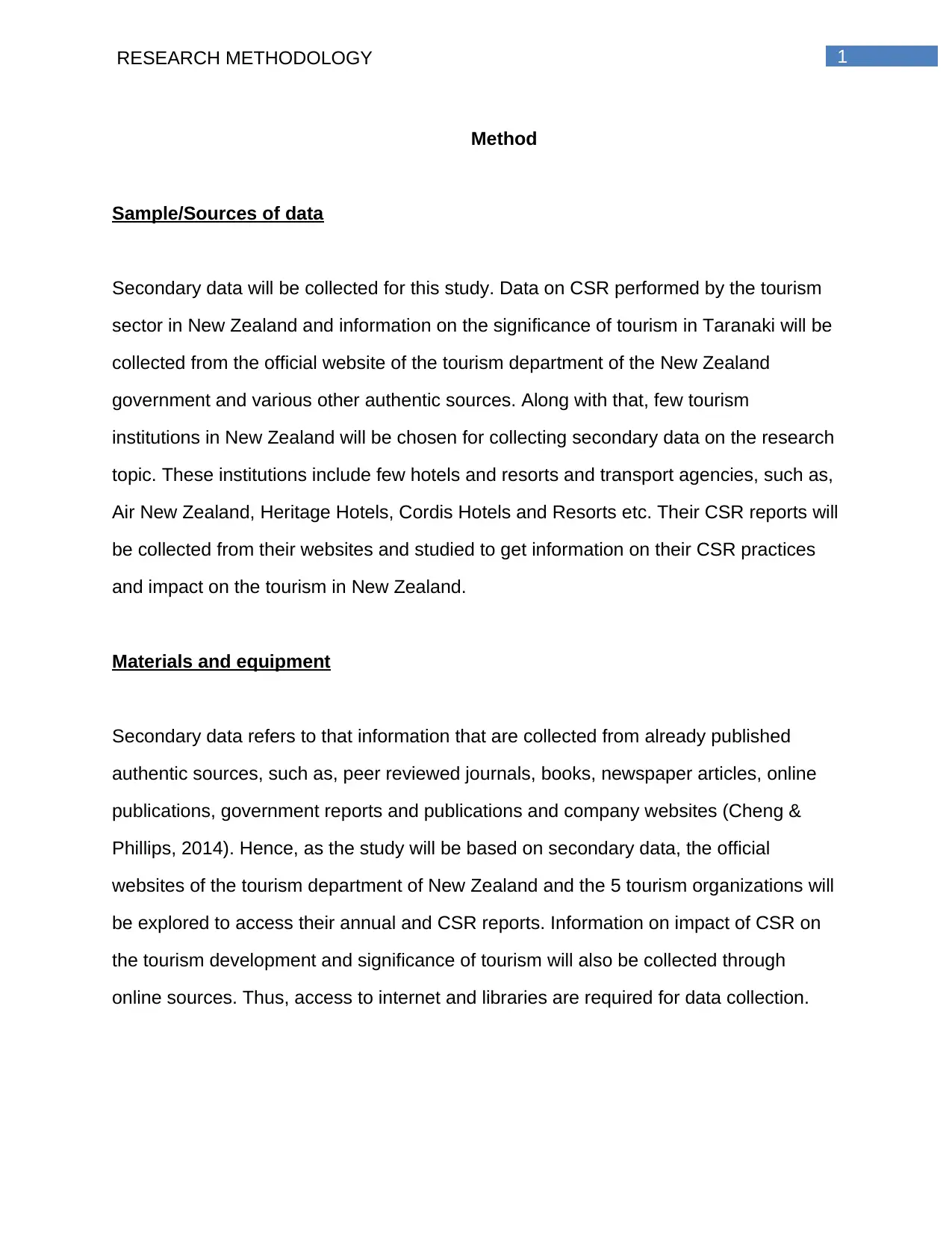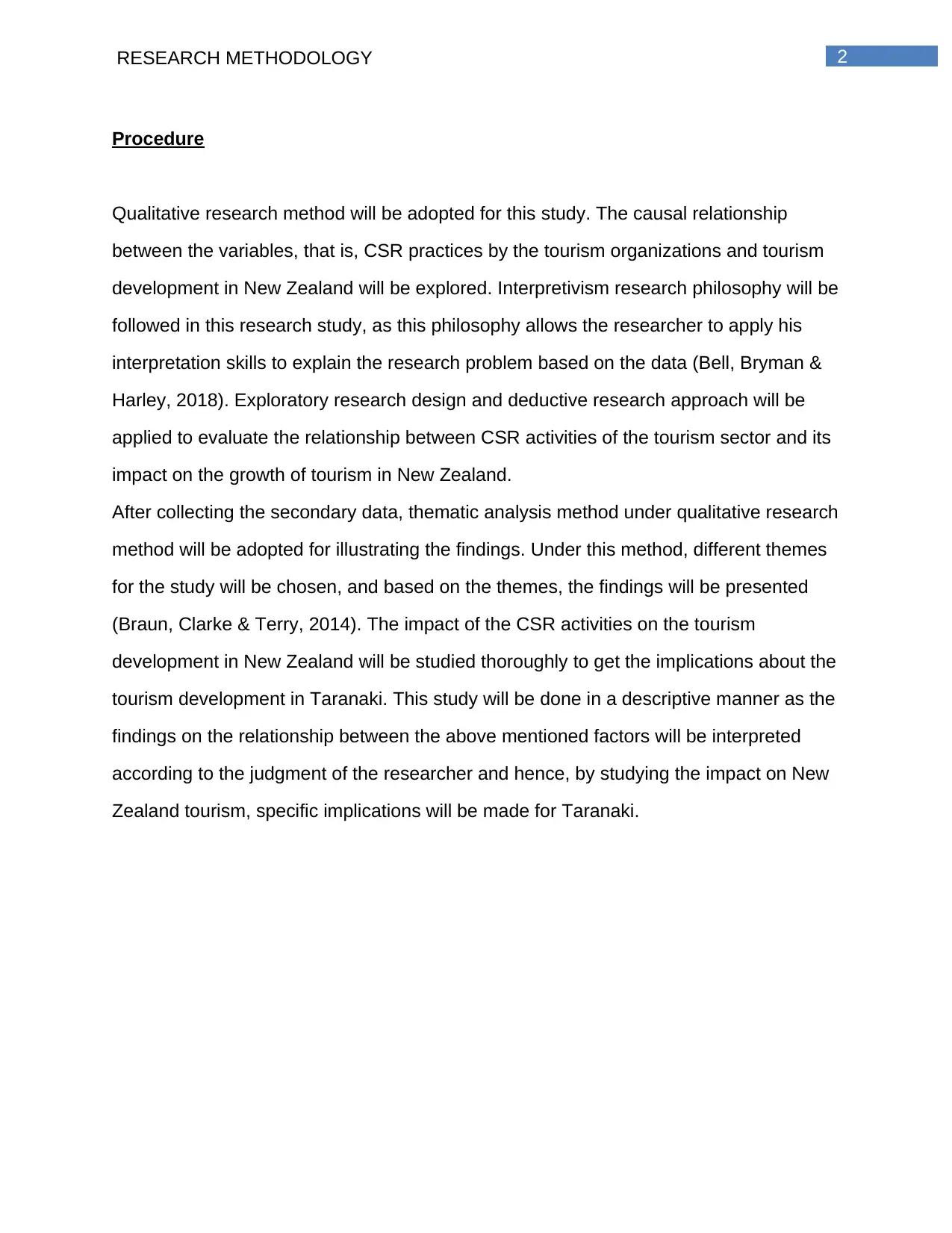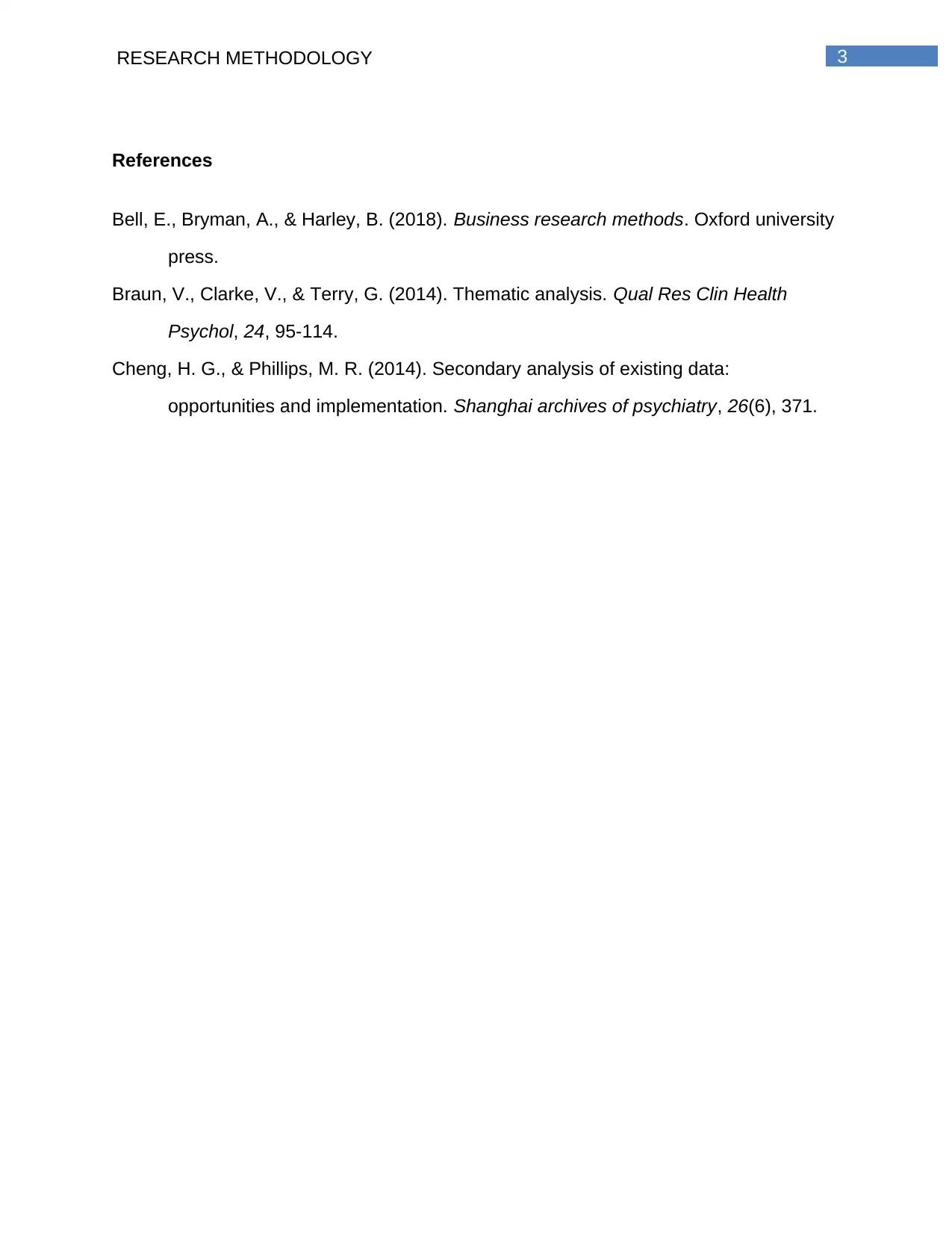Analyzing CSR's Impact on Tourism: A New Zealand Case Study
VerifiedAdded on 2021/12/04
|4
|623
|63
Report
AI Summary
This report details a research methodology employed to investigate the impact of Corporate Social Responsibility (CSR) on tourism in New Zealand, with a specific focus on implications for Taranaki. The study utilizes secondary data, including official tourism websites, CSR reports from tourism organizations (e.g., hotels, airlines), and peer-reviewed journals. A qualitative research method is adopted, employing an interpretivist philosophy to explore the causal relationship between CSR practices and tourism development. Exploratory research design and a deductive approach are used. Thematic analysis will be applied to the collected data. The research aims to provide descriptive insights into the impact of CSR on New Zealand's tourism sector, with specific implications drawn for Taranaki's tourism development. The report outlines the data collection methods, research design, and analytical techniques used to assess the relationship between CSR initiatives and tourism growth.
1 out of 4









![[object Object]](/_next/static/media/star-bottom.7253800d.svg)